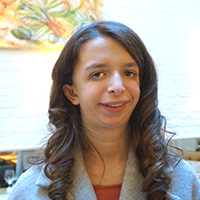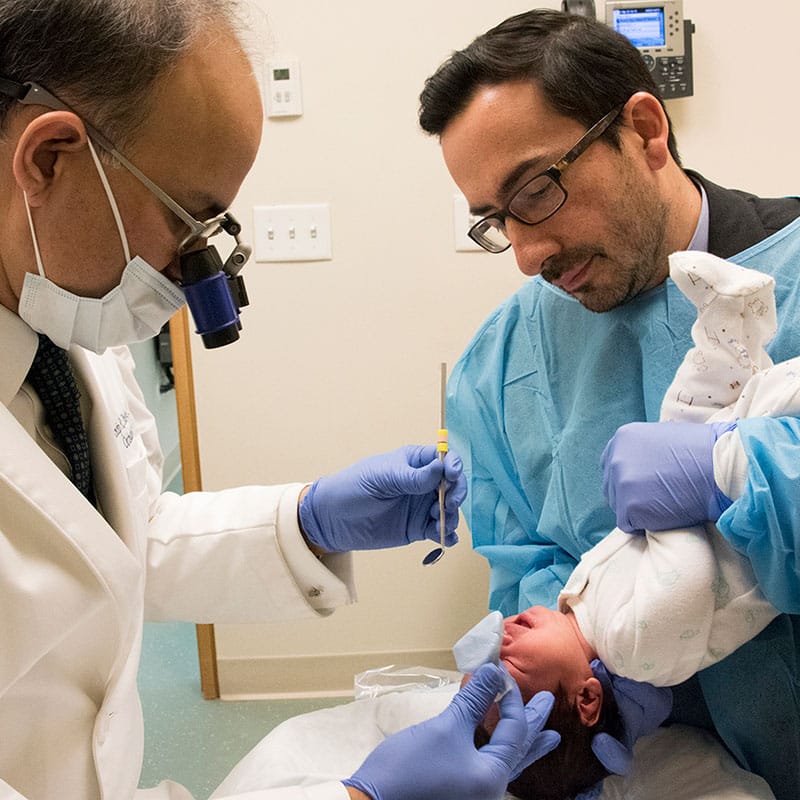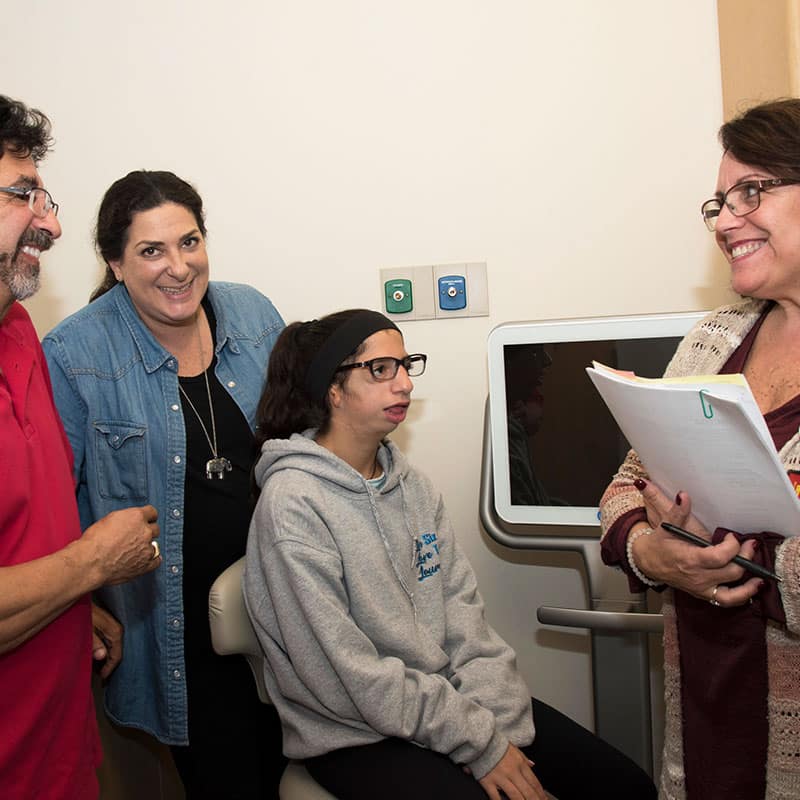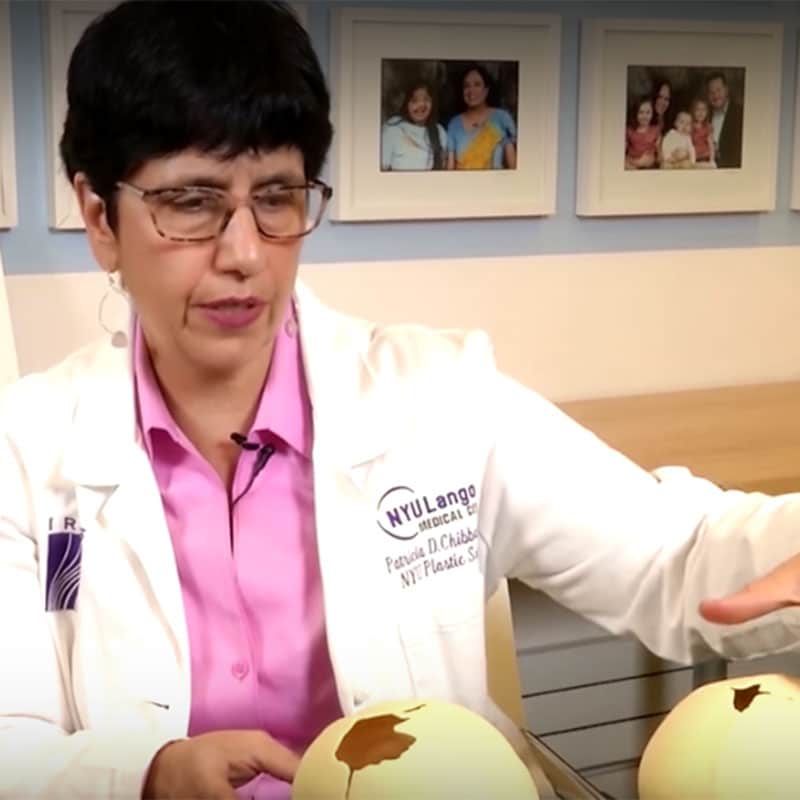Treacher Collins Syndrome (TCS)
Craniofacial Conditions > Treacher Collins Syndrome (TCS)
What is Treacher Collins Syndrome?
Other names for this condition include: TCS, TCOF, Treacher Collins-Franceschetti Syndrome, Mandibulofacial dysostosis, and MFD1
Treacher Collins Syndrome (TCS) is a rare genetic disorder that affects the development of the bones and soft tissues in the face. Some of the common features of Treacher Collins Syndrome include underdeveloped cheekbones, a small mouth and jaw, ear abnormalities, downward-slanting eyes, and cleft palate. These features may vary in severity, and can affect both appearance and function – including breathing, feeding, and hearing.
Treacher Collins Syndrome
- Overview: Treacher Collins Syndrome (TCS), also known as mandibulofacial dysostosis, is a rare genetic disorder characterized by distinctive abnormalities in craniofacial development.
- Prevalence: This condition, which affects approximately 1 in 50,000 live births, results from mutations in specific genes responsible for the development of facial bones and tissues.
- Diagnosis: Treacher Collins Syndrome is diagnosed through clinical evaluation of characteristic facial features, confirmed by genetic testing for mutations in the TCOF1, POLR1C, or POLR1D genes.
- Common characteristics: Underdeveloped facial bones, Downward-slanting eyes, Small lower jaw, and Abnormalities of the ears, sometimes leading to hearing loss.
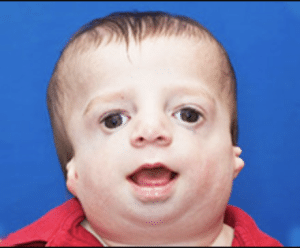
Causes and Genetics of Treacher Collins Syndrome (TCS)
Treacher Collins Syndrome (TCS) is a genetic disorder that results in distinctive craniofacial abnormalities, primarily due to mutations in specific genes. These genes, namely TCOF1, POLR1C, and POLR1D, are crucial for the early development of facial bones and tissues. Mutations in these genes disrupt the normal developmental process, leading to the characteristic features observed in TCS. The mode of inheritance and the occurrence of TCS can vary depending on which gene is mutated.
Genetic Causes and Inheritance Patterns
Mutations in TCOF1 or POLR1D genes lead to TCS through an autosomal dominant pattern of inheritance. This means an individual only needs to inherit one mutated gene from one parent to be affected. When TCS is caused by mutations in the POLR1C gene, it follows an autosomal recessive pattern. In this scenario, an individual must inherit mutated genes from both parents to be affected.
De Novo Mutations
Some individuals may develop TCS without a family history of the condition. This occurs due to de novo (new) mutations in the relevant genes, underscoring the spontaneous nature of its genetic origin in certain cases.
Clinical Features of TCS
Individuals with Treacher Collins Syndrome may exhibit a wide range of symptoms with varying degrees of severity, including:
- Facial Structure Abnormalities: Underdevelopment of the zygoma (cheekbones), mandible (lower jaw), and maxilla (upper jaw), leading to a characteristic facial appearance.
- Eye Abnormalities: Downward slanting palpebral fissures (the open space between the eyelids), coloboma (a notch in the lower eyelid), and sparse eyelashes on the lower lid.
- Ear Abnormalities: Malformations of the external ear (ranging from slight anomalies to complete absence), hearing loss due to abnormalities in the middle ear structures, and, in some cases, the inner ear can be affected.
- Airway Problems: Due to underdevelopment of facial bones, individuals may experience breathing difficulties and an increased risk of respiratory infections.
Diagnosis and Management
Diagnosis of Treacher Collins Syndrome is primarily based on physical examination and the characteristic facial features. Genetic testing can confirm the diagnosis by identifying mutations in the TCOF1, POLR1C, or POLR1D genes. Early diagnosis is crucial for managing the condition effectively and can involve a multidisciplinary team including craniofacial surgeons, audiologists, dentists, speech therapists, and genetic counselors.
Management strategies focus on addressing the specific symptoms present in the individual. Surgical interventions may be required to correct jaw and cheekbone abnormalities, improve breathing, and reconstruct the ears. Hearing aids or bone-conduction devices may be necessary for those with hearing loss. Continuous monitoring and supportive therapies play a key role in ensuring individuals with TCS achieve their full potential.
Meet Flossy: A teenager with Treacher Collins Syndrome (TCS)
Flossy, 13
Born with Treacher Collins Syndrome (TCS), Flossy has profound hearing loss and hears with the benefit of hearing aids. TCS has shaped Flossy, but does not define her. She is fun loving, determined and persistent, and doesn’t let TCS slow her down.
Treatment for TCS
Treatment for Treacher Collins Syndrome may involve surgery to reconstruct facial bones, improve hearing or breathing, and correct cleft palate. People with Treacher Collins Syndrome may also need other supportive measures such as speech and language therapy and hearing aids. Genetic counseling may also be recommended for individuals and families affected by Treacher Collins Syndrome.
Advances in Treatment and Support for Treacher Collins Syndrome
Treacher Collins Syndrome is a complex condition that requires a comprehensive and compassionate approach to care. Advances in genetics and surgery have significantly improved the quality of life for individuals with TCS, allowing them to lead fulfilling lives despite the challenges they may face. Awareness and understanding of TCS are crucial for early diagnosis, effective management, and support for affected individuals and their families.
FAQ on Treacher Collins Syndrome
What are the causes of Treacher Collins Syndrome?
Treacher Collins Syndrome is caused by mutations in genes involved in facial development, primarily affecting the POLR1C, POLR1D, and TCOF1 genes.
Is Treacher Collins Syndrome genetic?
Yes, it is a genetic disorder, inherited in an autosomal dominant pattern, though many cases result from new mutations in the affected genes.
How common is Treacher Collins Syndrome?
It is relatively rare, occurring in about 1 in 50,000 live births.
Does Treacher Collins Syndrome affect the brain?
The syndrome does not affect the brain’s intellectual development, though it can impact structures of the head and face.
Can Treacher Collins Syndrome be detected before birth?
Yes, Treacher Collins Syndrome can often be detected before birth through advanced ultrasound and genetic testing.

